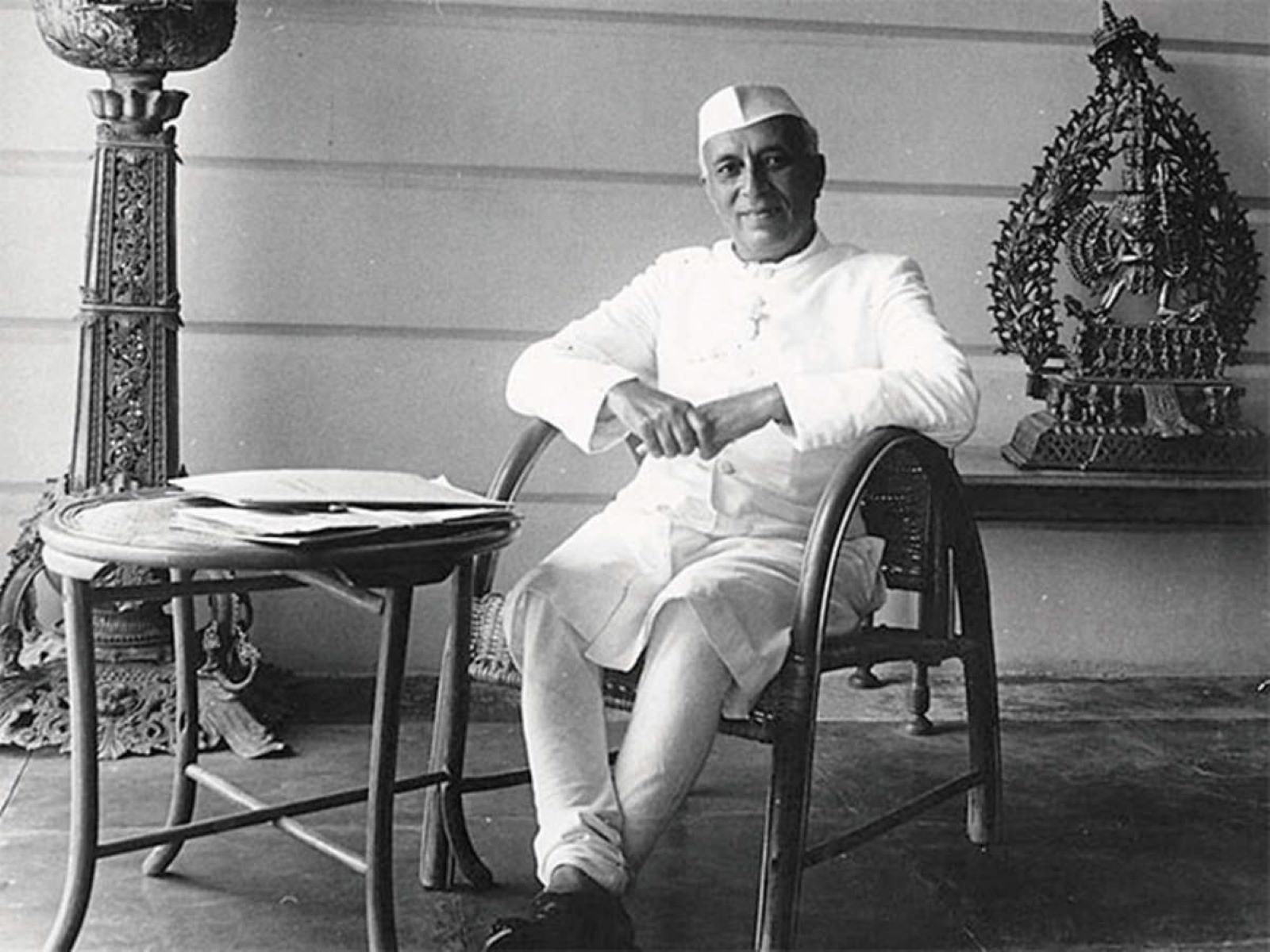
Jawaharlal Nehru, often referred to as Pandit Nehru, was a prominent Indian leader and the first Prime Minister of independent India. His contribution to the country’s struggle for independence and his subsequent role in shaping India’s political and economic landscape make him a highly revered figure in Indian history.
However, there are numerous intriguing facts about Nehru that go beyond his political achievements. From his early years as a student in England to his close friendship with Mahatma Gandhi, there are many aspects of Nehru’s life and personality that continue to captivate people’s interest.
In this article, we will delve into 15 intriguing facts about Jawaharlal Nehru that shed light on the man behind the icon. These facts not only offer a glimpse into his personal life but also provide insights into his thoughts, ideals, and influence on modern India.
Key Takeaways:
- Jawaharlal Nehru was India’s first Prime Minister and a key leader in the fight for independence, shaping the country’s destiny and promoting non-violent resistance.
- Nehru’s legacy includes promoting women’s rights, scientific advancements, and education, and his birth anniversary is celebrated as Children’s Day in India.
Nehru was the first Prime Minister of India
Jawaharlal Nehru served as the first Prime Minister of India from 1947 to He played a significant role in shaping the country’s destiny and leading it through its formative years.
Nehru was a key figure in India’s struggle for independence
Jawaharlal Nehru was a prominent leader in the fight for India’s independence from British rule. He worked closely with Mahatma Gandhi and other freedom fighters, leading various movements and advocating for non-violent resistance.
Nehru was deeply influenced by Mahatma Gandhi
Nehru’s ideologies and political philosophy were greatly influenced by Mahatma Gandhi’s teachings on non-violence, civil disobedience, and social justice. He shared a close mentor-disciple relationship with Gandhi, who played a vital role in shaping Nehru’s leadership qualities.
Nehru played a crucial role in drafting the Indian Constitution
As the head of the Constituent Assembly, Jawaharlal Nehru played a pivotal role in drafting the Indian Constitution. He emphasized the principles of democracy, equality, and secularism, which were enshrined in the constitution.
Nehru promoted scientific and technological advancements
Jawaharlal Nehru recognized the importance of scientific and technological progress for India’s development. He established institutions like the Indian Institutes of Technology (IITs) and the Atomic Energy Commission, laying the foundation for scientific research and technological advancement in the country.
Nehru was a prolific writer
In addition to his political contributions, Nehru was a prolific writer. He penned several books, including his autobiography, “The Discovery of India,” which provides insights into the country’s history, culture, and philosophy.
Nehru was a champion of women’s rights
Nehru was a staunch advocate for gender equality and women’s rights. He worked towards empowering women and played a crucial role in the inclusion of women’s rights in the Indian Constitution.
Nehru was known for his charismatic personality
Jawaharlal Nehru had a charismatic persona that resonated with the masses. His eloquence and ability to connect with people made him a beloved leader and a symbol of hope for the Indian population.
Nehru established the Non-Aligned Movement
Nehru was one of the key founders of the Non-Aligned Movement, which aimed to promote cooperation and peaceful coexistence among nations during the Cold War era. He played an instrumental role in advocating for the principles of non-alignment.
Nehru had a close relationship with his daughter, Indira Gandhi
Jawaharlal Nehru shared a close bond with his daughter, Indira Gandhi, who later became the Prime Minister of India. Their relationship had a profound impact on Indira’s political career and decision-making.
Nehru was fondly called “Panditji”
Jawaharlal Nehru was affectionately referred to as “Panditji” by the Indian public. The term “Pandit” is an honorary title given to individuals with deep knowledge and expertise.
Nehru was a strong proponent of secularism
Nehru firmly believed in the principle of secularism and advocated for a pluralistic society where people of all religions could coexist harmoniously.
Nehru was a socialist
Jawaharlal Nehru embraced socialist ideals and aimed to bridge the socio-economic gap between different sections of society. He implemented economic policies that focused on social welfare and the upliftment of the marginalized.
Nehru was passionate about education
Nehru firmly believed that education was the key to societal progress. He laid the foundation for a robust educational system in India and emphasized the importance of providing education to all citizens.
Nehru’s birth anniversary is celebrated as Children’s Day in India
To commemorate Nehru’s love for children, his birth anniversary, 14th November, is celebrated as Children’s Day in India. It is a day dedicated to celebrating the innocence and potential of children.
Conclusion
In conclusion, Jawaharlal Nehru was a towering figure in Indian history and his legacy continues to inspire people worldwide. From being the first Prime Minister of independent India to his role in shaping the country’s democratic principles, Nehru’s impact cannot be understated. Through his vision of a strong, united, and progressive India, he laid the foundation for the nation’s growth and development.
These 15 intriguing facts about Jawaharlal Nehru shed light on both his personal and political life, showcasing the depth of his achievements and the complexities of his character. From his role in the freedom struggle to his international contributions, Nehru’s imprint on India’s history is indelible.
Nehru’s commitment to education, secularism, and social justice continues to resonate with people to this day. He believed in the power of democracy and fought for equality, leaving a lasting impact on India’s social fabric. As we remember the contributions of this remarkable leader, let us strive to uphold his values and work towards a better and more inclusive society.
FAQs
Q: What is Jawaharlal Nehru best known for?
A: Jawaharlal Nehru is best known for being the first Prime Minister of independent India and for his pivotal role in shaping the country’s early years.
Q: When was Jawaharlal Nehru born?
A: Jawaharlal Nehru was born on November 14, 1889.
Q: What was Nehru’s role in the Indian freedom struggle?
A: Nehru played a crucial role in the Indian freedom struggle, serving as one of the main leaders of the Indian National Congress and participating in various civil disobedience movements against British rule.
Q: What were Nehru’s contributions to the field of education?
A: Nehru emphasized the importance of education and worked towards establishing a strong educational system in India. He played a key role in the establishment of the Indian Institutes of Technology (IITs) and the Indian Institutes of Management (IIMs).
Q: Did Nehru have any international achievements?
A: Yes, Nehru was a prominent figure on the international stage and played a crucial role in shaping India’s foreign policy. He was one of the founders of the Non-Aligned Movement and worked towards building strong relationships with other countries.
Q: What is Nehru’s connection to the UNESCO World Heritage Sites in India?
A: Nehru played a key role in preserving India’s cultural heritage and advocated for the conservation and restoration of historic sites. His efforts contributed to several UNESCO World Heritage Sites in India, including the Red Fort and the Qutub Minar in Delhi.
Nehru's legacy extends beyond his political achievements. Jawaharlal Nehru Stadium, named after India's first Prime Minister, holds astonishing facts waiting to be explored. Born in Allahabad, a city steeped in history, Nehru's birthplace offers 36 intriguing facts for those eager to learn more about his roots and the city that shaped him. Delving into these lesser-known aspects of Nehru's life and the places connected to him promises a fascinating journey of discovery.
Was this page helpful?
Our commitment to delivering trustworthy and engaging content is at the heart of what we do. Each fact on our site is contributed by real users like you, bringing a wealth of diverse insights and information. To ensure the highest standards of accuracy and reliability, our dedicated editors meticulously review each submission. This process guarantees that the facts we share are not only fascinating but also credible. Trust in our commitment to quality and authenticity as you explore and learn with us.


